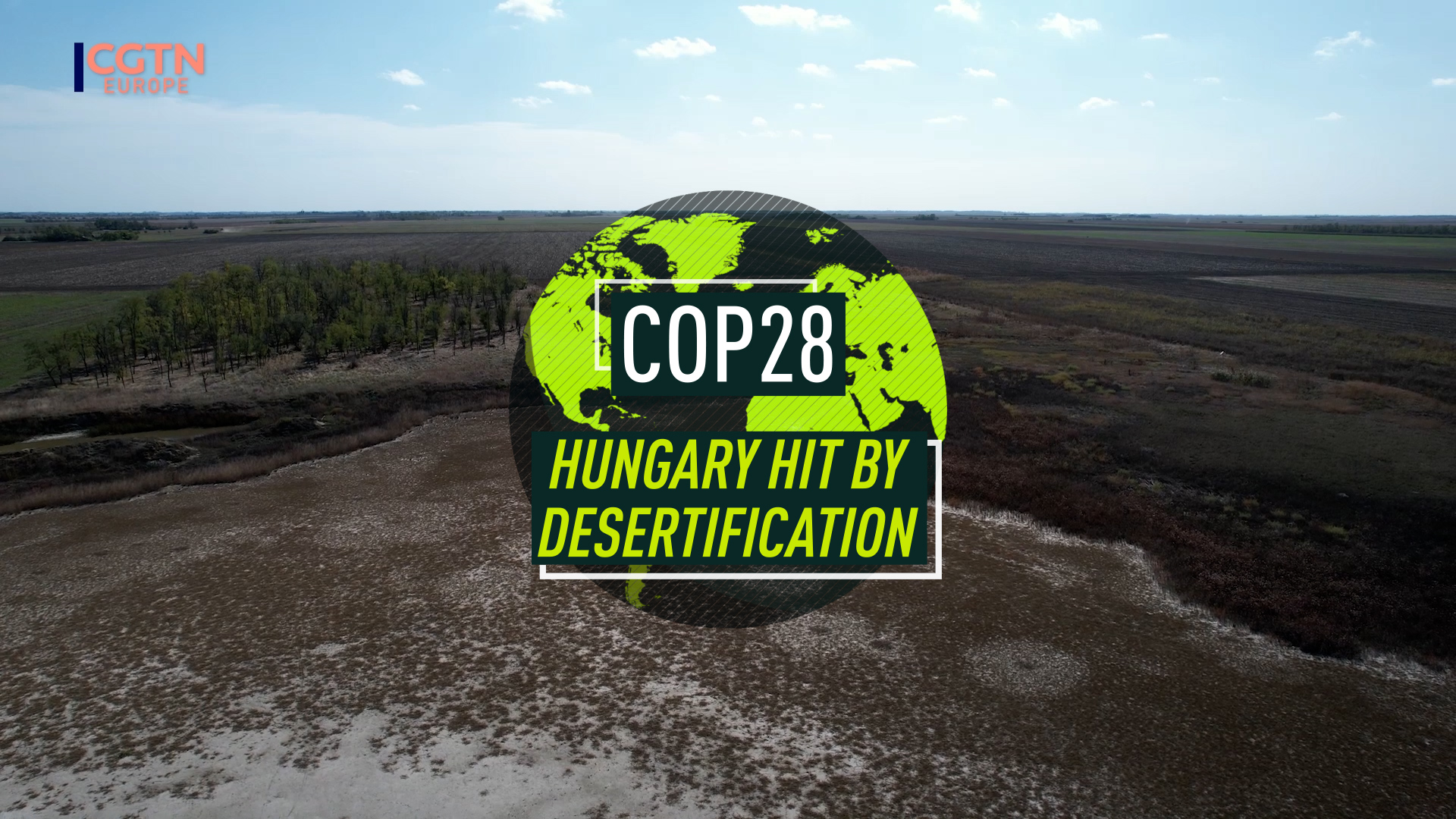02:41

Hungary is generally seen as a country with sufficient water resources. However, the impact of severe droughts and the effects of global warming are becoming evident. In various parts of the country, agricultural lands are experiencing increasing aridity, requiring irrigation for nearly every green area. Experts say these areas will soon become deserts.
Lake beds parched and cracked are increasingly common in Hungary's Great Plain region. The once foreboding prospect of desertification here has now become a stark reality.
"Nobody anticipated the rapid and severe onset of climate change effects here in Hungary. You can see how it's devastated the landscape," said Andras Balazs Lukacs, a Biologist at the Hungary Ecological Institute.
READ MORE
France moves to ban e-cigs
EU and Xi discuss trade
Israel and Gaza engage in fierce ground battle

Hungary's agricultural lands are facing long dry spells and the threat of long term desertification as temperatures continue to rise./CGTN.
Hungary's agricultural lands are facing long dry spells and the threat of long term desertification as temperatures continue to rise./CGTN.
Wildlife and the environment are undergoing significant changes. Grass cover is diminishing, Forests are drying, and surface waters are gradually vanishing.
"We are severely affected by climate change, droughts, flash floods, heavy rainfalls. When it gets hot in the Carpathian Basin, there is no airflow to move that heat out, and it remains hot," said Mate Janos Litkei - Director of Hungary's Climate Policy Institute.
Hungarian farmers are coming to terms with the possibility that dry pastures and withered fruits might become the new normal. Global warming is expected to affect a substantial portion of Hungary's agricultural land adversely. Droughts have already led to the destruction of over half a million crops, resulting in multimillion-dollar losses for farmers.
Some farm owners say they've started adjusting to the changing climate conditions. Peter Szabo is one of a few paprika growers using a technique to combat drought. This involves blending volcanic minerals into the soil to enhance its water-retaining ability.

Peter Szabo is one of a few paprika growers using a technique to combat drought. This involves blending volcanic materials into the soil to enhance its water retaining ability./CGTN.
Peter Szabo is one of a few paprika growers using a technique to combat drought. This involves blending volcanic materials into the soil to enhance its water retaining ability./CGTN.
"One kilogram of volcanic mineral can absorb seven liters of water, and after 10- 15 days it's still wet, so when I spread a ton per hectare, the soil can keep the water for that many days," Szabo told CGTN.
For some farmers, the situation has reached a critical point. Zoltan Kulcsar often travels to Budapest with his livestock to raise awareness outside Hungary's government buildings. He says the intense summer heat and prolonged drought transform farmland into barren dunes.
"We require effective water resource management and improved land management practices to minimize our environmental impact," said Kulcasar.
The Hungarian government plans to increase irrigation system coverage from 90,000 to 300,000 hectares by 2030. However, this will only account for 7.2 percent of the country's total farmland, which is 4.1 million hectares. The apocalyptic-type scenes we're witnessing now might just be a preview of what lies ahead for Hungary unless something can be done.

Subscribe to Storyboard: A weekly newsletter bringing you the best of CGTN every Friday